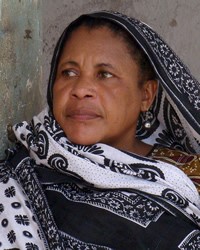Comorian, Ndzwani in Madagascar

Photo Source:
Islas Comores - Flickr
Creative Commons
|
Send Joshua Project a map of this people group.
|
| People Name: | Comorian, Ndzwani |
| Country: | Madagascar |
| 10/40 Window: | No |
| Population: | 17,000 |
| World Population: | 385,500 |
| Primary Language: | Comorian, Ndzwani |
| Primary Religion: | Islam |
| Christian Adherents: | 0.00 % |
| Evangelicals: | 0.00 % |
| Scripture: | Portions |
| Ministry Resources: | No |
| Jesus Film: | No |
| Audio Recordings: | Yes |
| People Cluster: | Bantu, Swahili |
| Affinity Bloc: | Sub-Saharan Peoples |
| Progress Level: |
|
Introduction / History
Comorians live on a group of islands in the Indian Ocean between Madagascar and Mozambique, Africa. The Comoros chain consists of four main islands plus several smaller ones. Comorian communities can be found on all of the islands in the chain, as well as in Madagascar. Comorians are a blend of settlers from the past: Iranian traders, mainland Africans, Arabs, and Malagasy. The different Comorian groups take their name from the particular island on which they live. The Ndzwani Comorians are from the island of Anjouan. They speak the Ndzwani language.
Because of poor economic conditions, many of the Ndzwani Comorians live in Madagascar, where they hope to make a better living.
What Are Their Lives Like?
Most Ndzwani Comorians in Madagascar work as farmers or fishermen, while a few raise cattle, sheep, goats and donkeys. A small number work in industry or in jobs relating to tourism. There are also merchants and businessmen among them. Their basic diet consists of rice, potatoes, corn, fish, coconuts and bananas. They also grow sweet potatoes, citrus fruits and pineapples.
Children are expected to help with the farming, fishing, and caring of the animals. For recreation, Comorians enjoy dancing, singing, and playing instruments, especially horns and drums.
What Are Their Beliefs?
Ndzwani Comorians in Madagascar are Shafiite Muslims, yet mosque attendance is very low. Mixed with their Islamic practices is a strong involvement in occultism and spirit possession. They do not see a contradiction between the teachings of Islam and these traditional practices. Comorians have always been resistant to religious change.
What Are Their Needs?
The physical needs of Ndzwani Comorians are many.
The spiritual needs of the Comorians are even greater than their physical needs. Evangelism is not well received by these Muslims. Their commitment to Islam, coupled with involvement in occultish practices, has made these people's hearts unreceptive to the lordship of Jesus Christ. Christian resources are limited and the workers are few.
Prayer Points
Ask the Lord to call people who are willing to evangelize and disciple the Ndzwani Comorians in Madagascar.
Pray for the Ndzwani Comorians to have the spiritual hunger it takes to stand with Christ despite community pressure.
Ask the Lord to send Christian teachers and medical teams to work among Ndzwani Comorians in Madagascar.